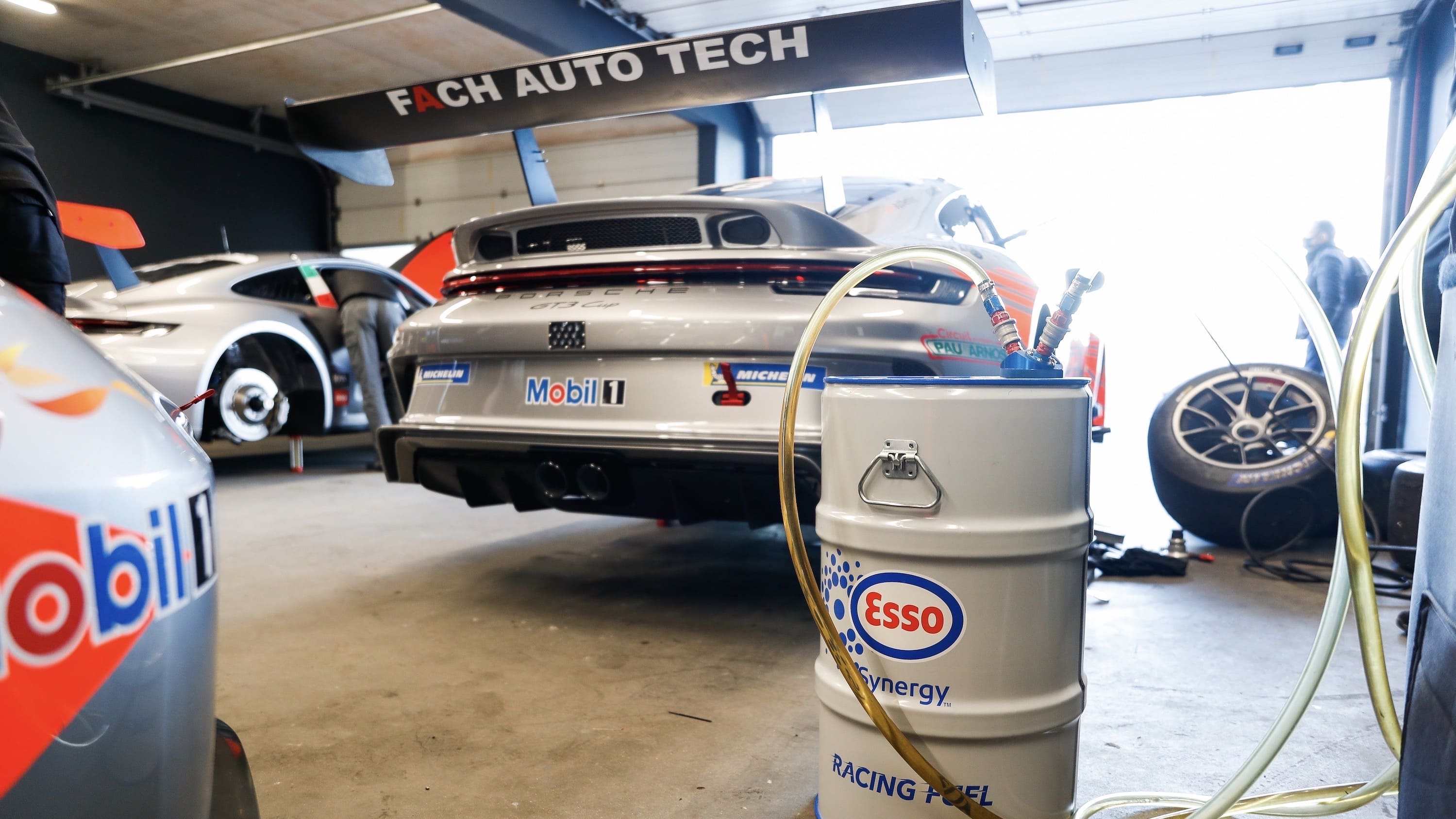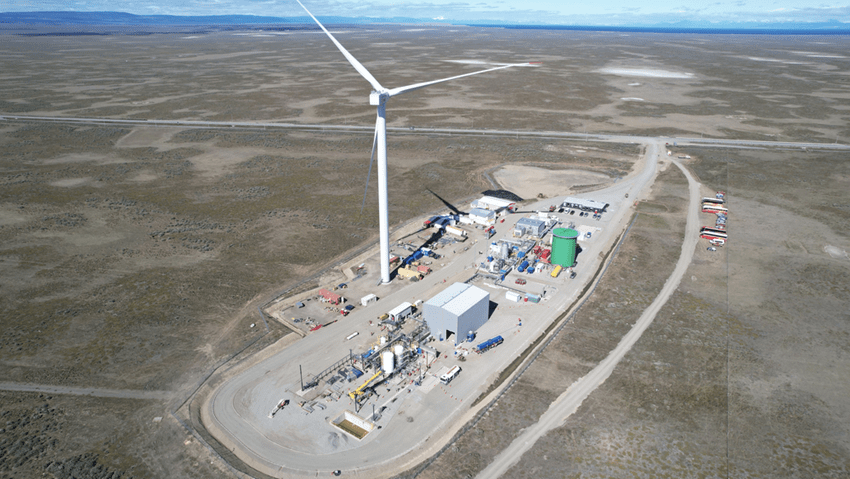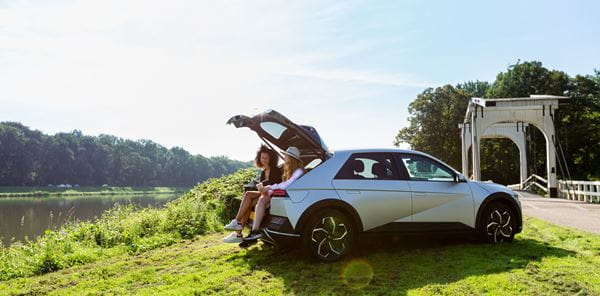
E-fuels: what are they, and can they become an alternative to battery-electric cars?
Under pressure from Germany, Europe will not only allow battery or fuel cell vehicles from 2035, but also cars with combustion engines running on climate-neutral e-fuels. Are these a valid alternative from an ecological point of view?
E-Fuels or synthetic fuels are potential substitutes for fossil fuels. They are produced by splitting water into hydrogen (H2) and oxygen (O2) through electrolysis. In a second step, the extracted hydrogen is combined with carbon extracted from the air (CO2 ) and converted into e-fuels. These come in different forms: diesel, petrol, kerosene or LNG (Liquefied Natural Gas).
Those various production steps require a lot of electricity, which obviously has to be of renewable origin for the final product to be climate-neutral. When e-fuels are combusted in an internal combustion engine, CO2 is released, but it is the same CO2 that was extracted from the air earlier in the production process. This is obviously not the case for conventional petrol or diesel, which are made from petroleum and release CO2 that was stored in the ground for centuries.
So in itself, it sounds nice: e-fuels are climate-neutral and can easily be used in existing internal combustion engines. In addition, the existing infrastructure of filling stations and pipelines can be used and there is no need for large infrastructure works like for battery-electric cars. Still, the whole e-fuel story is not as obvious as it seems at first glance.
First, a huge amount of green energy is needed to produce e-fuels. That energy from wind, sun and water is not always available when and where it is needed, and it is also very difficult to store. When that relatively scarce green energy is used to produce e-fuels, it is no longer available for other applications.
In addition, there is insufficient production capacity for mass use of such e-fuels. Today there is just one plant, in Chile, operated by Porsche and Siemens, which should start producing some 550 million litres of e-fuels a year by the second half of this decade. While that seems like a lot, it is no more than the contents of the largest supertanker at the moment.
A second plant is being built in Norway, but its output is entirely destined for aircraft. Even if production is ramped up substantially, it will not be enough to run a significant proportion of the European car fleet on synthetic e-fuels within a few years. According to studies, there would only be enough e-fuel for 2 per cent of all European cars by 2035.
Then there is the issue of price. Analysts count on a consumer price of 3 to 4 euros per litre. Initially, e-fuels will therefore mainly be an option for sports car manufacturers such as Porsche or Ferrari, who will thus be able to continue selling combustion engine cars beyond 2035.
One caveat to be made about the use of synthetic fuels is that while they may be climate-neutral in terms of CO2 emissions, they still have an environmental impact. This is because the burning of those e-fuels still releases pollutants. The environmental lobbygroup Transport & Environment states, based on its own research, that when comparing a petrol car running on e-fuels with a battery-electric car, the emissions of the car using synthetic petrol are all together 40 per cent higher, because pollutants are still released when burning the synthetic fuels.
For instance, a synthetic-fuelled car emits as much NOx as a car using conventional E10 petrol and also produces twice as much ammonia and up to three times as much carbon monoxide. Particulate matter emissions, however, are as much as 81 to 97 per cent lower. Nor are such fuels completely climate-neutral, according to the organization. In terms of CO2, they may be, but burning e-fuels in an internal combustion engine also releases the greenhouse gases methane (CH4) and nitrous oxide (N20).






